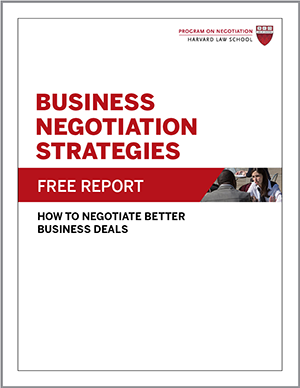
Suppose your research reveals that the TV you want is fairly new on the market.
Further research about your local store leads you to believe it may be willing to go as low as Amazon.com’s price of $900. Now you have a general sense of the ZOPA, or zone of possible agreement: between $900 (your estimate of the store’s reservation price) and $975 (your reservation price).
Thus, your goal in the upcoming negotiation is to get a deal that’s as close to $900 as possible.
Once you’ve done your homework, it’s time to set the stage for success. Consumer Reports advises you to negotiate early or late in the day, when stores are often quiet, and late in the month, when salespeople may be especially eager to meet quotas.
At chain stores, where regular sales staff may not have the power to haggle, you might need to approach a manager.
Open negotiations out of earshot of other customers, recommends Consumer Reports, as sales staff may not want others to get wind of your haggling.
Bring along up-to-date information about competitors’ prices (your BATNA) and expect the other side to verify it.
Be polite and cordial throughout the negotiation process, and also be willing to accept no for an answer.
Finally, because stores typically pay fees on credit-card purchases, keep in mind that salespeople may be more willing to bargain if you offer to pay in cash.
When to make the first offer
After you discuss the pros and cons of your desired item, the salesperson might offer to give you a discount without any prompting. If not, open the negotiation yourself: “I can buy this TV online this weekend at a much lower price. Can we work together toward a more competitive deal?”
If the salesperson is willing to negotiate, and if you have a strong sense of the ZOPA, you are positioned to make an offer: “Can you beat Amazon.com’s price? It’s $900. I can pay in cash, by the way.”
Imagine that the salesperson tells you his store has a new policy against matching, let alone beating, Internet deals. Furthermore, he reminds you that your great online deal is about to expire.
Even so, by dropping this “anchor,” you have likely swayed him away from the previous anchor—the TV’s $1,100 list price—and toward your end of the ZOPA.
What’s more, because you proved you’ve done your homework, he is likely to view your offer as credible, if not entirely reasonable.
Adapted from “Master the Art and Science of Haggling,” in the August 2009 issue of Negotiation.




